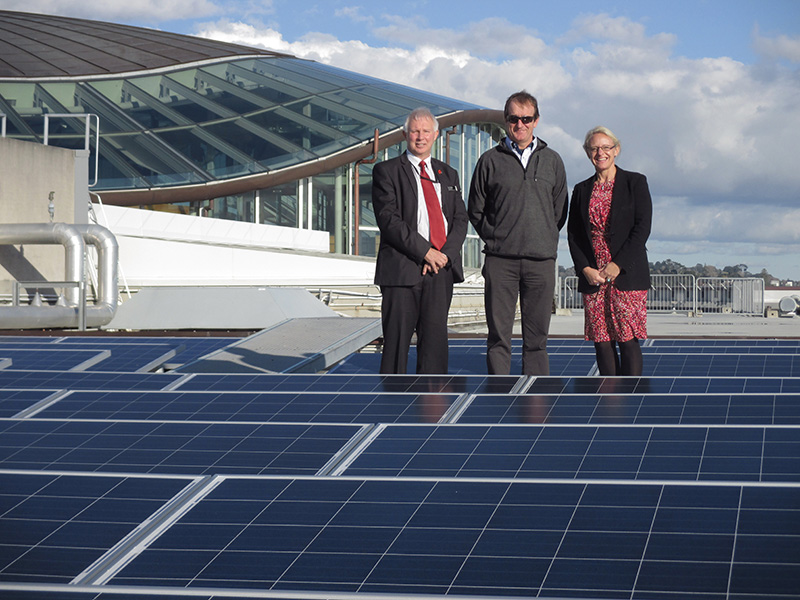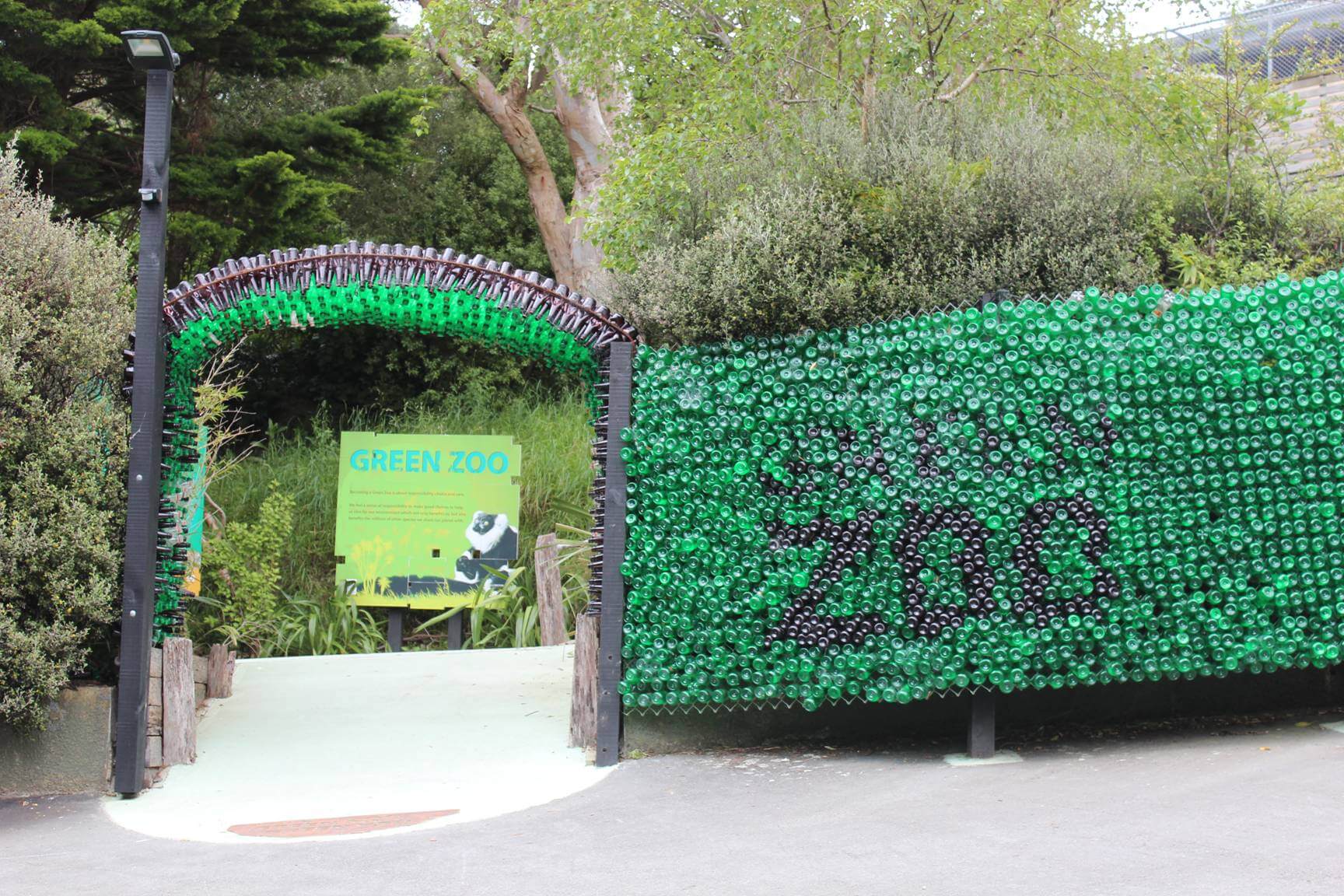In this Q&A find out how Dr Ann Smith, thinks we can create a greener, wealthier New Zealand. As the Chief Executive Officer of Enviro-Mark Solutions Limited, Ann passionately leads an organization which is home to the carboNZero, CEMARS, Enviro-Mark and Energy-Mark certification programmes.
Smith’s vision describes the opportunities and challenges that our country faces on the path to sustainable living. Ann has a varied history, including academic research, sustainable development strategies, and programme development.

Dr Anne Smith
What does sustainability mean to you?
Environmental: Living within resource limits, and leaving the environment in a better state for future generations than we found it.
Social: Diversity, equality and fairness in workforce.
Financial: Taxing consumption rather than employment to drive conservation of resources and minimize waste. Longer-life products and a switch from throw-away consumption. Encourage innovation.
How and why did you first become interested in sustainability?
Spending my high school years in Port Pirie, South Australia which had the largest lead-zinc smelter in the southern hemisphere (spewing out sulphur dioxide, cadmium, and heavy metals into the environment) sparked my awareness into human effects on the environment. I became interested in environmental management and then sustainability when I realized that I could make a difference by working directly and collaboratively with business and industry to help them change the way they do business rather than finding fault and criticizing them from outside the front gate as it were.
What is one thing you do in your everyday life to improve the environment?
I try to reduce the amount of waste that I generate. I challenge myself when making purchasing decisions – Do I need it? Is there a more sustainable option? Is it entirely NZ produced?
What do you think is the biggest threat to creating a more sustainable NZ economy?
Lack of substance to “clean green” and “100% pure” claims has the potential to cause reputational and economic damage.
An uneven playing field for business in terms of accreditation. Leaders taking voluntary action are at a disadvantage where their competitors are not held to account for failing to meet basic standards. For example, when a company purchases more expensive cleaner fuel to reduce pollution but competitors can continue operating using dirty fuel.
What do you perceive as the biggest barrier for NZ businesses, organizations and individuals adopting more sustainable behaviors?
Lack of education and understanding of the impacts of our lifestyles and ways of doing business. There is an entrenched belief in business that operating sustainably costs more. Like any other investment, costs to operate more sustainably should be backed up by a business case that has examined whole life costing and potential profitability compared with continuing with business as usual.
Has NZ missed any environmental opportunities over the last few years?
The Permanent Forests Sinks Initiative (PFSI) is world class in its design. But it has limited domestic market in NZ for selling the carbon credits where the market will pay at a price that is worthwhile for landowners. NZ companies want to use NZ projects for their offsetting when they become carbon neutral.
What are the greatest opportunities for NZ in regards to sustainability?
Achieving genuine and authentic claims that can be substantiated if challenged and using inspirational targets to drive innovation. Reaching 100% renewable energy, net zero emissions, reducing fossil fuel dependency and accounting for the emissions that we export and import are all business opportunities for NZ.

Solar panel installation on Auckland Museum’s roof
Do you think a low carbon economy will solve the environmental crisis?
No. But if we do not move to a sustainable low carbon economy, there will be unprecedented environmental crises. An economy based on net zero emissions requires many other aspects of sustainability to be delivered – energy efficiency, alternative energy, waste minimization, resource efficiency, water conservation, behavioral change, even predator free NZ will contribute to removing carbon dioxide from the atmosphere due to more productive native forests.
Is Zero Carbon possible?
For NZ it would require massive restoration of native forest and a reduction in the emissions associated with livestock or even reduction in livestock numbers. I find it interesting that there is often a focus on reducing the amount of meat we eat but no discussion on reducing dairy foods in our diet.
What country or region conducts the best environmental practices?
The Scandinavian countries show leadership for different aspects of environmental and social sustainability.
Sweden has exemplary social policies and taxes consumption not employment.
Denmark and Norway strongly encourage renewable energy sources.
The UK carbon budgets have cross party support and have been groundbreaking in the long-term planning that goes beyond electoral cycles.
What NZ businesses or organizations are taking the lead in regards to sustainability?
Companies have different cultures and issues, and vary enormously in the ways they demonstrate sustainability leadership. I like approaches that develop a solution to one issue and simultaneously solve other issues both internally and externally to the business.
- Yealands is constantly looking for ways to reduce environmental impacts, converting waste into resources.
- Wellington Zoo is a great role model for smaller businesses – they think about environmental impacts at all levels of the business from procurement to waste disposal.
- Auckland Airport – not only are they driving energy efficiency through the campus development but they are also creating jobs for the local community.
If you had to live off one food for the rest of your life what would it be?
I would choose local avocados, if they were available all year round. But I suspect that living on one food type would not be healthy.
List three tangible tips to help shift Kiwis toward a greener future?
- Informed purchasing decisions – question the source, safety, quality, environmental and social claims being made by the producer; ask for evidence.
- Companies and government entities make informed procurement decisions – assess the impacts of their suppliers and work with them to reduce environmental and social impacts – only retaining suppliers who are improving.
- NZX sets requirements for listed companies to account for environmental and social impact including climate impact disclosure. Directors to have liability for environmental and social risks including climate impact along with the normal financial risks.
Why is collaboration between businesses, investors, organisations and public institutions so important to achieving inclusive green growth?
These groups are all interdependent. If businesses do not operate sustainably, they are not reaching their potential or accounting for the environmental and social costs of business. To paraphrase Lord Stern’s words on climate change, ‘delaying action on environmental and social issues will inevitably inflate costs when they become crises. Increasingly, investors will view lack of environmental and social accountability as a liability’.
The “Keep it in the Ground” (a campaign to keep the world’s remaining fossil fuels in the ground) has shocked both industry and investors. When businesses don’t account for their environmental and social impact, it affects public institutions through clean-up/health costs, reduced productivity, and reputational impacts. The public should not be paying the cost of free-loaders, and organisations should be required to account for their environmental and social impact.
What do you consider the key challenges with respect to achieving long-term global, inclusive green growth? And what can the policy, research and business communities do to overcome these challenges?
Population size and poverty are the key global challenges. Climate change impacts exacerbate the challenges, resulting in constant crisis management rather than long term planning. Global challenges can be addressed if the 17 UN sustainable development goals are used to guide policy development and strategic business planning.
Which of the 7 advantages (AgriTech, BioDiversity, BioProducts, Housing, Renewable Energy, Smart Grid, Waste To Value) has the most potential to shift NZ toward a greener future?
BioProducts. Creating more indigenous forests especially on marginally productive land, will increase carbon sequestration, improve biodiversity, reduce erosion, protect watersheds, restore riparian areas, protect waterways, and provide eco-tourism opportunities.




Leave a comment